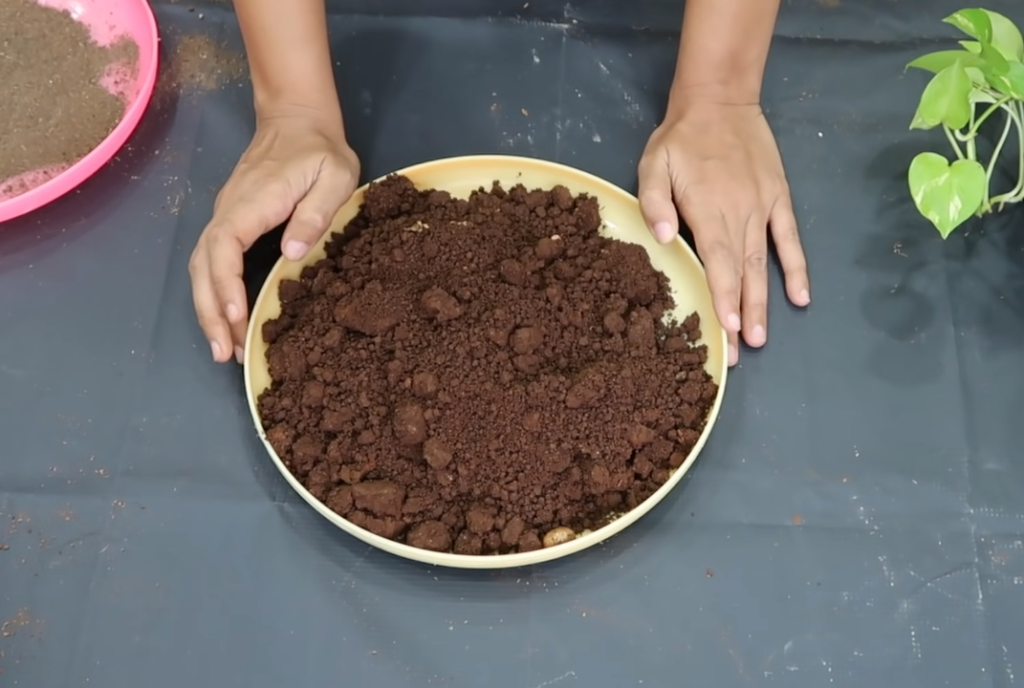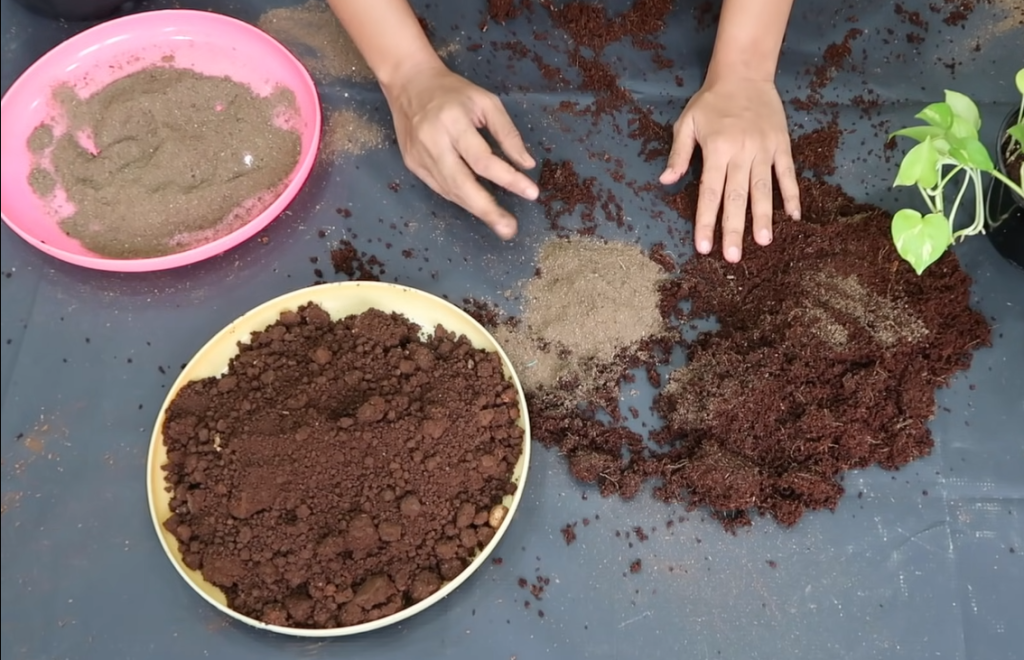Can You Use Garden Soil For Indoor Potted Plants? Pros & Cons
If you’re an indoor gardener, you may wonder: Can you use garden soil for indoor potted plants? After all, garden soil is rich in nutrients and readily available in most backyards. Many gardeners face this dilemma when deciding on the best soil for their indoor plants.
While garden soil may seem like a convenient option, it’s essential to understand the differences between garden soil and potting soil. Garden soil may contain pests, weed seeds, and pathogens that can harm your indoor plants.
Moreover, it can be too dense and provide inadequate drainage, leading to root rot. On the other hand, potting soil is specifically designed for potted plants and provides the necessary nutrients, aeration, and drainage for healthy growth.
In this blog post, we’ll explore the pros and cons of using garden soil for indoor potted plants and provide tips on choosing the best soil for your plants.
What Does Garden Soil Mean?
Garden soil refers to the natural soil found in outdoor gardens, which provides the necessary nutrients, moisture, and space for plant roots to grow. It typically contains various organic materials, such as compost, peat moss, coconut coir, sphagnum moss, and inorganic materials like bark and coir.

Additional fertilizers can enhance garden soil to ensure a proper balance of essential nutrients. Potting soil, on the other hand, is a specially formulated mix of soil, organic material, and other ingredients designed for potted plants and indoor plants.
Organic potting mixes may contain materials like compost and coconut coir to promote water retention and aeration, while synthetic mixes may contain fertilizers and other additives. It is important to use the appropriate soil mix for the type of plant and growing conditions to prevent issues like root rot and weed seed growth.
Can You Use Garden Soil For Indoor Potted Plants?
While it’s possible to use garden soil for indoor potted plants, it’s not always the best choice. Garden soil may contain weed seeds, pests, and diseases that can harm indoor plants. Additionally, garden soil may not have the right balance of nutrients and moisture retention for indoor plants.
Instead, it’s recommended to use a potting mix specifically designed for indoor plants. Potting mixes typically contain ingredients such as peat moss, coconut coir, bark, sphagnum moss, and other organic materials that promote water retention, aeration, and root growth.
You can mix in some organic compost or use a slow-release fertilizer to provide additional nutrients. Avoid using synthetic fertilizers, as they can harm the soil and potentially harm your indoor plants. Your indoor plants can thrive and grow healthy roots with the right potting mix and fertilizer.
However, if you’re a novice in indoor gardening, you should first learn how to start an indoor garden for beginners. This will help you to make your indoor gardening plant successful.
How to Choose the Best Soil for Your Indoor Potted Plants
Indoor plants are a beautiful addition to any home; providing them with the right soil is essential for their growth and health. Here are some factors to consider when choosing the best soil for indoor potted plants.
Type of Soil
The type of soil you choose will depend on the specific needs of your plants. Outdoor garden soil is not suitable for indoor plants as it can contain weed seeds, pests, and diseases. Potting soil or a quality commercial potting mix is a good choice, as it is formulated to provide the necessary drainage, aeration, and nutrients for potted plants.
Nutrients
Plants require essential nutrients to grow, and the soil should provide a balance of nutrients to support their growth. Look for a soil mix that includes organic nutrients like compost or aged manure, which are slowly released into the soil as they break down.
Ingredients
Check the ingredients list on the soil mix package to ensure it contains nutrient-rich and sustainable materials. Avoid synthetic ingredients and use natural and organic materials like coconut coir, peat moss, sphagnum moss, and bark.
Moisture Retention
Indoor plants need a soil mix that can hold moisture but not become waterlogged, which can lead to root rot. Look for a soil mix that contains a moisture retention component, like coconut coir or peat moss, to aid in moisture retention.
Fertilizer
Some soil mixes may come with added fertilizer, while others require you to add your own. Choose a well-balanced fertilizer that provides the necessary nutrients for your plants without excess nutrients that can harm them.
Organic Material
A good soil mix should contain organic material, which provides important nutrients and aids in aeration. Look for mixes that contain plant materials, like compost or woody material, or aeration materials, like perlite or vermiculite.
Roots
Strong roots are essential for healthy plant growth, and the soil mix should provide support. Look for a soil mix that promotes strong roots, such as those that contain coconut coir or peat moss.
Space
Consider the size of your plant’s container and choose a soil mix that allows enough space for roots to grow. A good rule of thumb is to leave at least one inch of space between the soil surface and the top of the container.
Seeds
If you are starting seeds indoors, choose a soil mix designed for seed starting. These mixes are formulated to provide the necessary nutrients and drainage for young plants.
Alternative Soil Options for Indoor Potted Plants
While traditional garden soil is not ideal for indoor plants due to its heaviness, the market offers various alternatives to cater to their needs. Here are some alternatives to consider.

Coconut Coir
Coconut coir is an excellent alternative to peat moss, which is not sustainable. This material comes from the outer husk of the coconut and is known for its excellent water retention abilities. Coconut coir also improves aeration in the soil, which benefits the roots’ growth. It is lightweight, easy to handle, and free from weed seeds, making it a good choice for indoor potted plants.
Compost
Compost is a natural, nutrient-rich alternative that provides organic matter to the soil. It enhances the soil’s structure, improves moisture retention, and promotes beneficial microbial activity. Compost can be made from various organic materials, such as fruit and vegetable scraps, grass clippings, and leaves, making it a sustainable option. However, ensuring the compost is matured to prevent root burn is essential.
Vermicompost
Vermicompost is a type of compost made from earthworms castings containing essential nutrients such as nitrogen, phosphorus, and potassium. It has excellent moisture retention capabilities and enhances soil aeration. Vermicompost is also pH-neutral, making it a suitable option for various plants.
Organic Potting Mix
Organic potting mix is specially formulated for indoor potted plants and typically contains organic materials such as coconut coir, peat moss, and bark. It provides excellent drainage, water retention, and nutrient availability for plants. Organic potting mix is also free from harmful chemicals, making it a safer option for plants and the environment.
Bark
Bark is a natural material that can be used as an alternative to peat moss or coconut coir. It improves soil aeration, enhances drainage, and provides organic matter to the soil. However, it is essential to ensure that the bark is aged to prevent the risk of root burn.
Final Words
The answer to the question “Can You Use Garden Soil For Indoor Potted Plants?” is yes and no. Garden soil can be used to fill indoor potted plants, but it is important to note that the soil must be amended to ensure the plants receive the necessary nutrients, moisture, and drainage.
You should remember that garden soil often contains weed seeds, so it is best to sterilize it before use. Ultimately, whether to use garden soil for indoor potted plants depends on the individual gardener’s needs and preferences.
